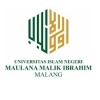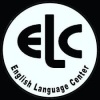THE STUDENTS’ PERCEPTION OF EXTENSIVE READING IN ONLINE LEARNING AT FLSP CLASS
Abstract
Full Text:
PDFReferences
Archambault, L., Wetzel, K., & Foulge, T. (2010). Professional Development 2.0: Transforming Teacher Education Pedagogy with 21st Century Tools. Journal of Digital Learning in Teacher Education.
Arifuddin, a. (2018). Students' perception in the impact of extensive. Yogyakarta.
Cakrawati, l. M. (2017). Students' perceptions on the use of online learning platforms in efl classroom. Journal of english language teaching and technology.
Day, R. (2015). Extending Extensive reading. Reading in a Foreign Language.
Démuth, A. (2013). Perception Theories.
Heriyawati, d. F., saukah, a., & widiati, u. (2018). Working memory capacity, content familiarity, and university efl students’ reading comprehension. Indonesian journal of apllied linguistic, 8.
Küçükoğlu, H. (2013). Improving Reading Skills Through Effective Reading Strategies. Elsevier (p. 70). Turkey: Elsevier. Ltd.
Richards, J., & Schmidt, R. ( 2013). Longman Dictionary of Language Teaching and Applied Linguistics. London: Routledge.
Anderson, T. (2011). The Theory and Practice. AU press.
Bell, Federman, B. S., & E, J. (2013). E-learning in postsecondary education. APAPsycNet, 23.
Day, R., Bassett , J., Bowler , B., & Parminter, S. (2011). Bringing Extensive Reading into the classroom. Oxford University Press España, S.A.
Iftanti, e. (2012). A survey of the english reading habits of efl students in indonesia. Teflin.
Krashen, S., Lee, S.-Y., & La, C. (2017). Comprehensible and Compelling. Libraries Unlimited.
Takase, A. (2012). The Effectiveness of Sustained Silent Reading in. Forum for foreign language education, 11.
Torres, D. B. (2017). Effectiveness and Students’ Perception of the. Revista de Lenguas Modernas, N.
Tseng, M.-c. (2010). Factors That Influence Online Reading:. The Reading Matrix, 96-105.
Waring, R; McLean, S;. (2015). Exploration of the score and variable dimension of extensive reading research and pedagogy. Reading in a foreign language .
Wilkinson, D. (2012). A Data-Driven Approach to Increasing Student Motivation in the Reading Classroom. Language Education in Asia, 3.
Yoğurtçu, K. (2013). The Impact of Self-efficacy Perception on Reading Comprehension on Academic Achievement. ELSEVIER, 375-386.
DOI: https://doi.org/10.18860/jeasp.v4i1.12618
Refbacks
- There are currently no refbacks.

This work is licensed under a Creative Commons Attribution-ShareAlike 4.0 International License.







Editorial Office:
Pusat Pengembangan Bahasa
Program Khusus Pengembangan Bahasa Inggris (PKPBI)
Universitas Islam Negeri Maulana Malik Ibrahim Malang
Gedung C lantai 1
Jl. Gajayana No 50 Kota Malang, Jawa Timur, Indonesia
Kode Pos 65144, Telp/Fax : (0341) 570872
Email: jeasp@uin-malang.ac.id
JEASP : Journal of English for Academic and Specific Purposes is licensed under a Creative Commons Attribution-ShareAlike 4.0 International











